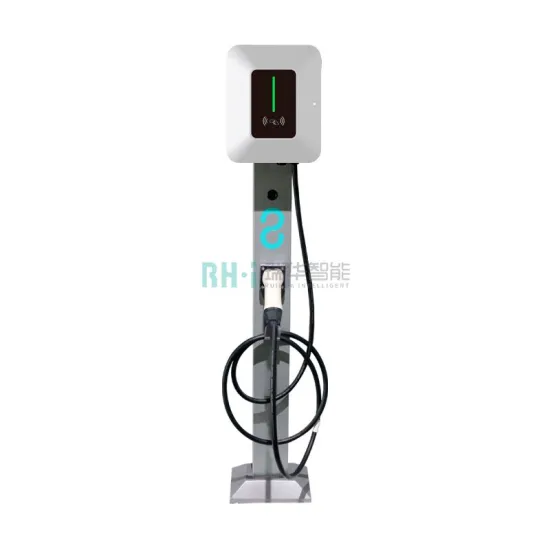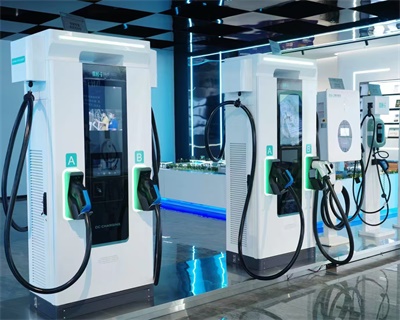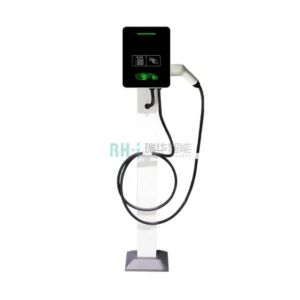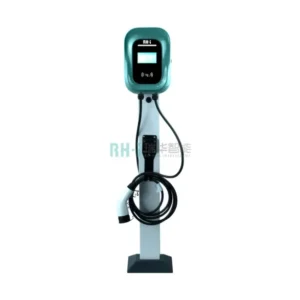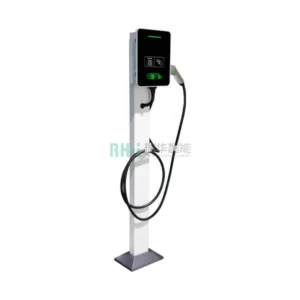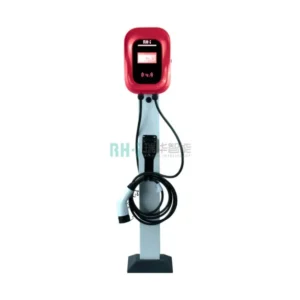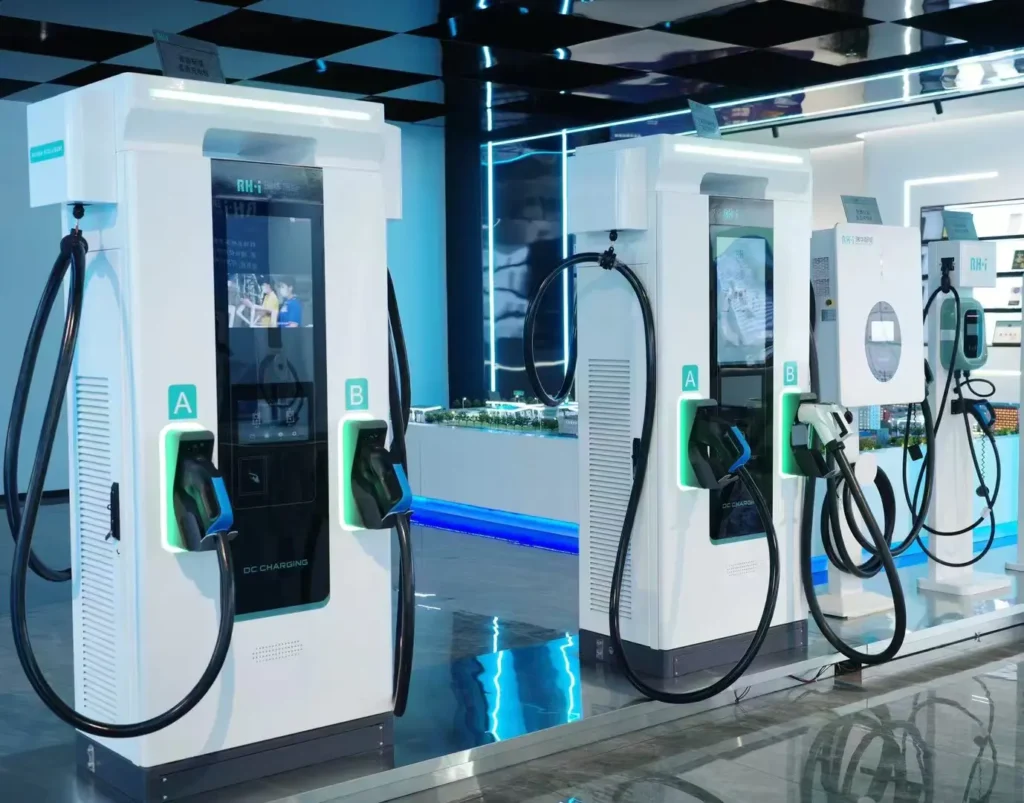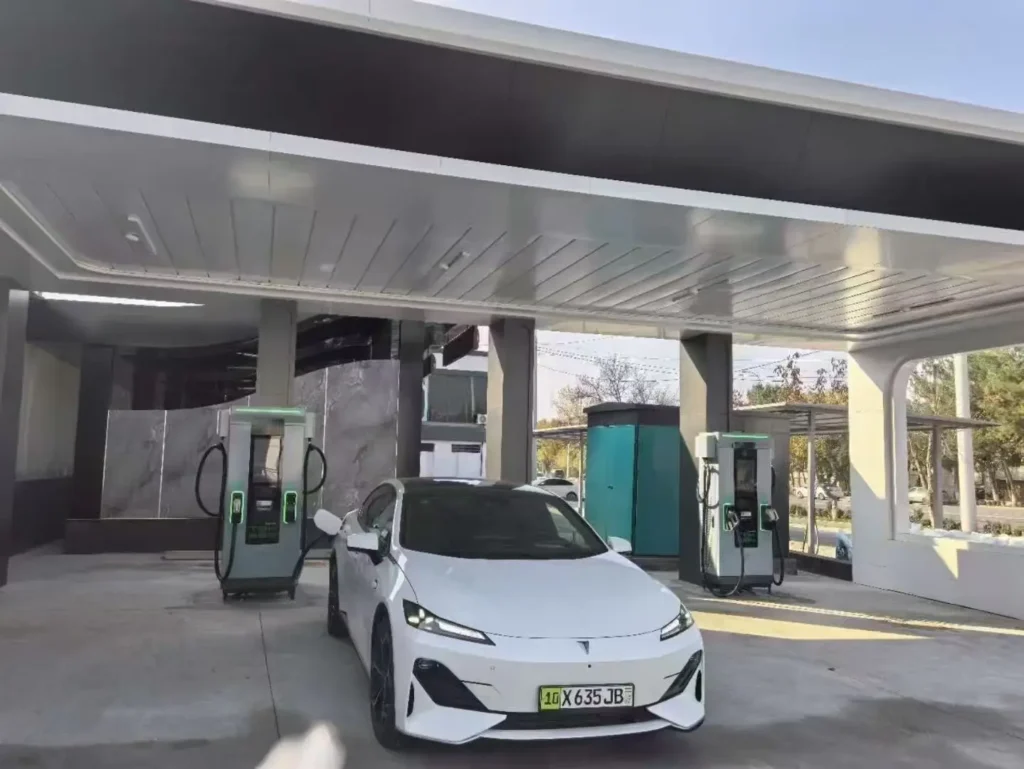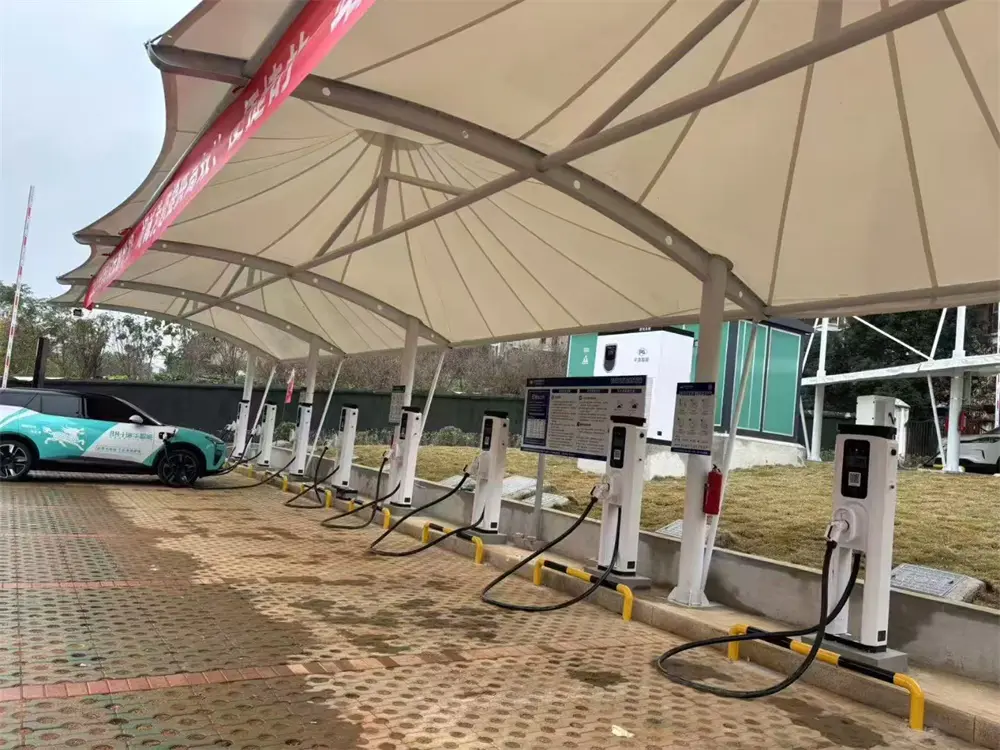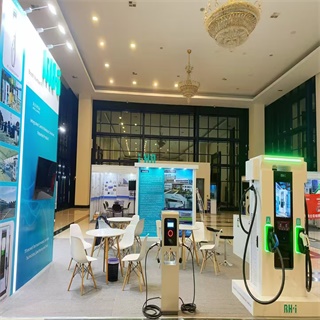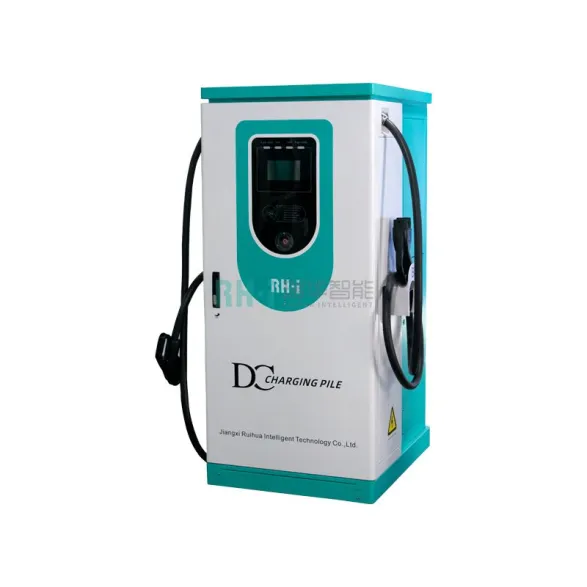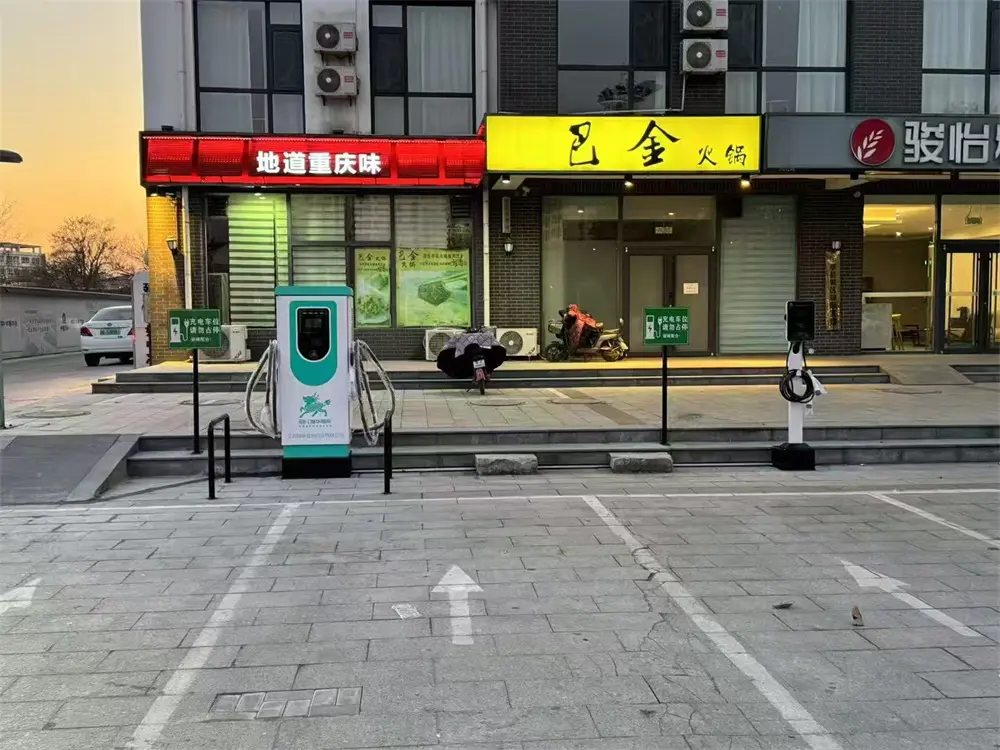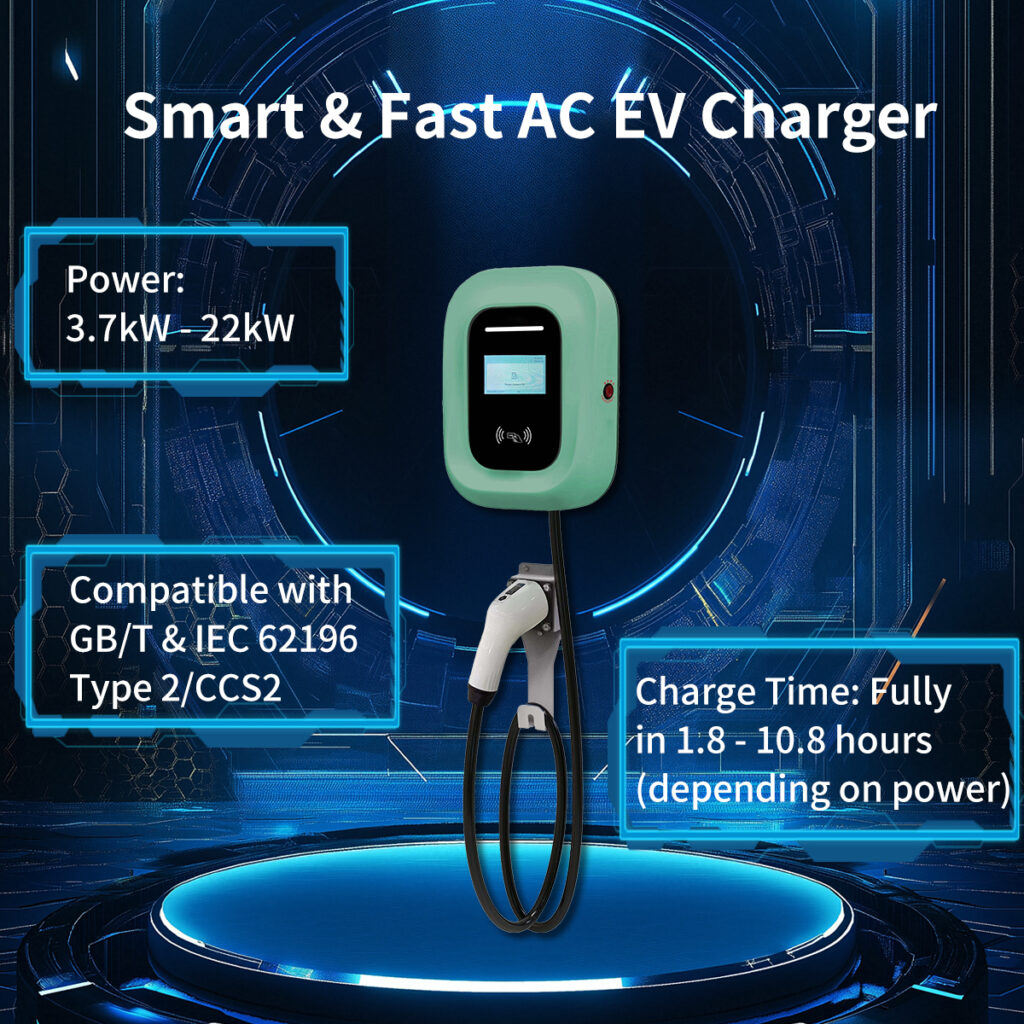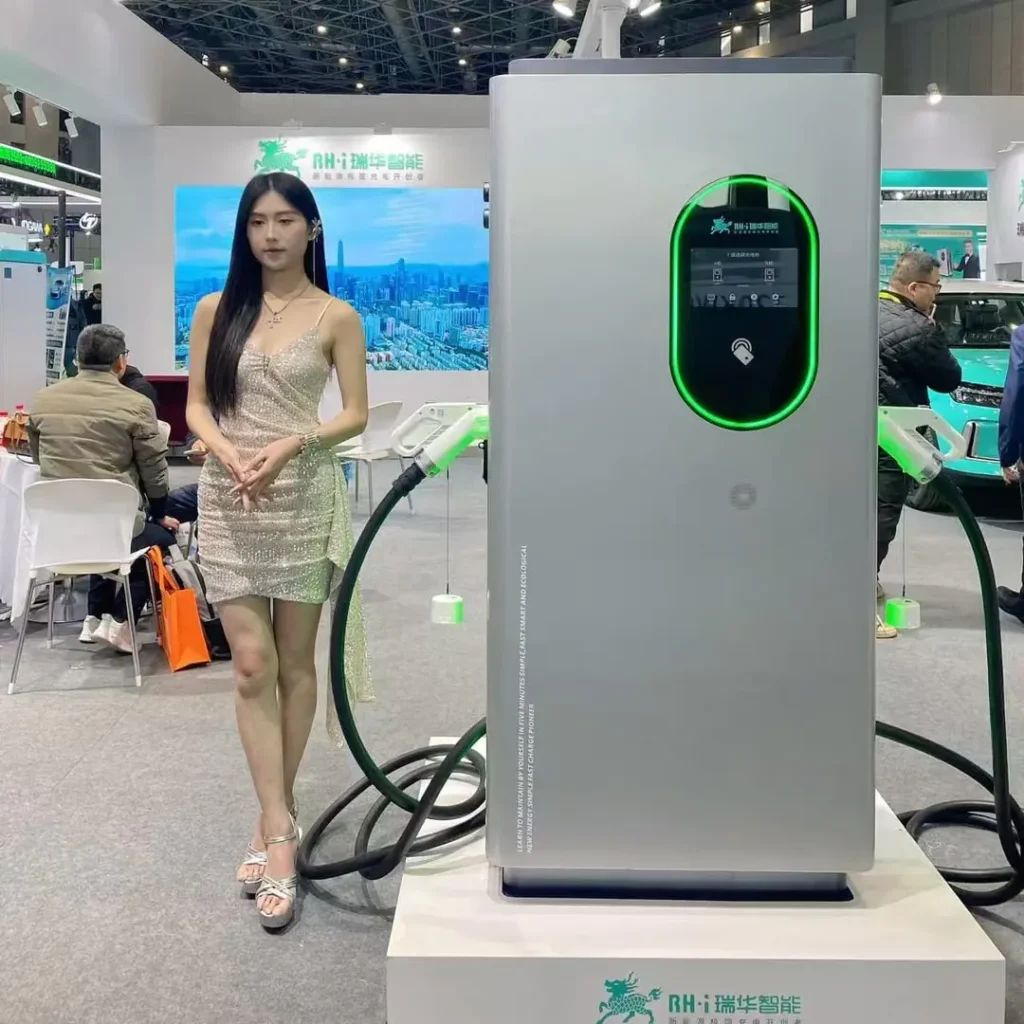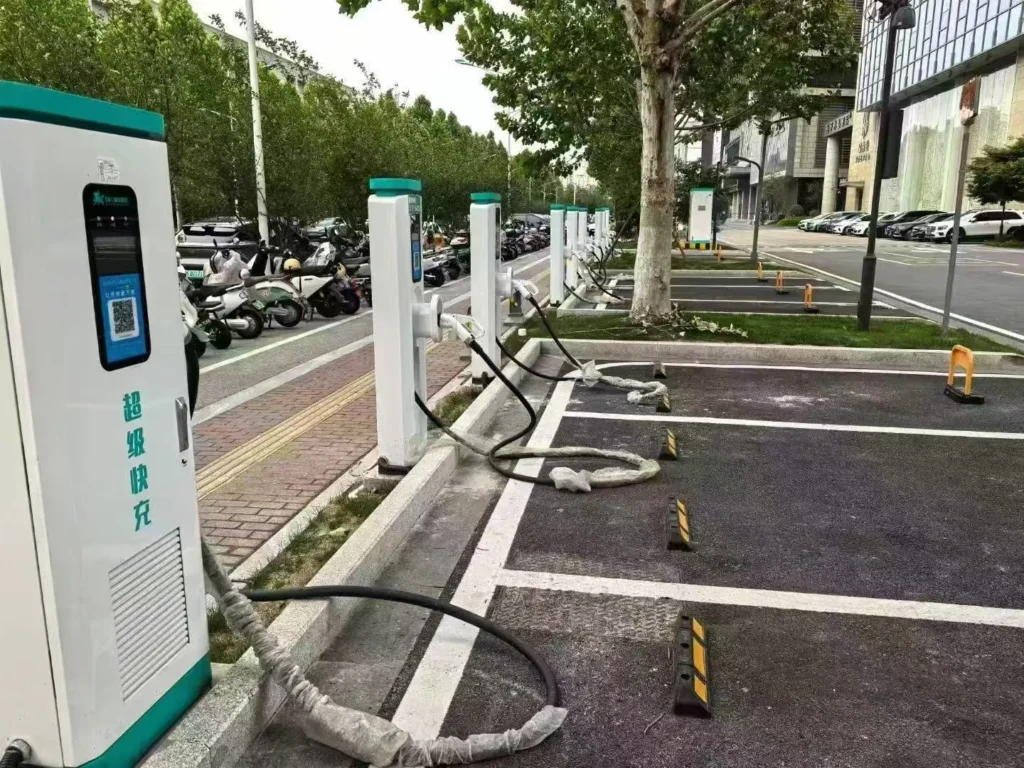Cheapest 7kw Home Charging Point (Type 2)
7kw home charging point – an efficient and intelligent electric vehicle charging solution designed for residential and light commercial scenarios. Equipped with a single-phase 230V voltage and a maximum output current of 32A, it can provide a fast and efficient charging experience for electric vehicles. Equipped with a Type 2 socket or a 5-meter long Type 2 fixed cable to meet diverse connection needs.
Integrated multiple electrical protection functions to ensure safe and worry-free charging. The 4.3-inch LCD screen and iOS/Android mobile application can monitor the charging status in real time, while Ethernet, WLAN and cellular network support give it intelligent interconnection capabilities and easily integrate into the smart home system.
- IEC 61851-1 Mode 3 fast charging for optimized charging performance
- IEC 62196 Type-2 cable connector for universal compatibility
- Charging speed of 7kW (32A) for faster charging
- Built-in overload and fault current protection for enhanced safety
- Built-in LED charging status indicator for easy monitoring
- MID certified energy meter for accurate energy measurement
- Built-in RCCB Type-B for fault current protection
- IP54 rating (IEC 60529) for reliable outdoor use
- CE certified for quality assurance and compliance
- Full support for OCPP 1.6J & OCPP 2.0 commands for easy integration with cloud-based charging management systems
- Ensure efficient, safe, and seamless charging with the Ruihua Level 2 Electric Car Charger – the ideal solution for EV owners and charging stations alike.
RHAC7K-X is designed for harsh environments, with an operating temperature range of -30℃ to 50℃ (-22℉ to 122℉), and a protection level of IP65, so it is not afraid of rain, snow, and dust. It has passed CE, IEC 61851-1 and IEC 62196-2 certification, and its quality is reliable and compliant.
It supports wall-mounted or ground-pole installation (optional accessories), built-in dynamic load balancing technology, and is compatible with OCPP 1.6J/2.0.1 protocols, so there is no need to worry about future upgrades. Whether it is a home garage or a commercial place, this charging pile is an ideal choice for modern electric travel with its intelligence, durability, and high adaptability.
| Model | RHAC7K-X | RHAC11K-X/RHAC21K-X |
| Applicaton | Residental / Commercial | |
| Voltage and Wiring | Single Phase 230V | Three Phase 400V |
| Frequency (Hz) | 50/60Hz | |
| Current Output | Single Phase 32A Max | Three Phase 32A Max |
| Charging Connector | Type-2 Socket or Type-2 Tethered 5m | |
| RCD | 30mA AC & 6mA DC | |
| Electrical Protecton | Over current, Under voltage,Over voltage, Over temperature,Surge protecton, Short circuit, Ground fault | |
| Buttons | 1 x Physical Button | |
| Indicatons | Green/blue/Red | |
| Network Connectvity | Ethernet, WLAN, Celluar | |
| RFID | ISO 14443 A/B | |
| Display | 4.3-inch LCD | |
| Data Protocol | OCPP1.6J, OCPP2.0.1 | |
| DLB | Dynamic Load Balancing | |
| Operaton Temp. | -30 °C ~ 50 °C / -22 °F ~ 122 °F | |
| Storage Temp. | -40 °C ~ 70 °C / -40 °F ~ 158 °F | |
| Working Humidity | 5%~95% without condensaton | |
| Mountng Type | Wall Mount (default) / Floor post (optonal accessory) | |
| Ingress Protecton | IP65 | |
| Dimension | 350*250*122 mm (H*W*D) | |
| Weight | 6.5 kg | 7.5kg/9.5kg |
| Mobile App | iOS/Android | |
| Certficaton | CE, IEC 61851-1, IEC 62196-2 | |
Is it worth buying a home charging point?
Of course it is. Buying a home charging point is a very wise investment in the long run.
Compared with public charging stations, home chargers use residential electricity prices and are usually cheaper. Charging at home at any time, without queuing or going out to find an idle public charging station, greatly improves the convenience of daily car use.
And dedicated home chargers (such as 7kW or 22kW) charge much faster than ordinary three-hole sockets, allowing you to recharge your vehicle faster, especially for owners with a high commuting frequency.
Secondly, a properly installed home charging point has safety features such as overload protection and leakage protection, which is more reliable than long-term use of ordinary sockets and reduces the risk of electrical failure.
With the popularity of electric vehicles, homes with EV charging facilities are more popular in the market, and they are also a plus for future property resales.
1) Increased Convenience
There is no doubt that home charging points are by far the most convenient way to charge your electric vehicle. There’s no need to wander around public charging points for hours or even wait in line to charge. With a home electric car charger, you can charge your vehicle anywhere, anytime, with no waiting and no hassle. Think of all the things you can do at home when you’re charging your electric car – cooking, cleaning, relaxing – home EV charging maximizes your convenience.
You can’t do that with a gasoline or diesel vehicle, can you?
Additionally, all home charging points allow you to schedule your charging time via a smartphone app. To maximize convenience, you can set your EV to charge at home at night, and your home charger will do it for you – all while saving you money on EV charging costs.
2) Increase your property value
While you may think an home charging point is more expensive than three-prong plug charging, it’s a worthwhile investment in the long run. In fact, 76% of homes with EV chargers saw an increase in property value.
With a ban on the sale of new gasoline and diesel vehicles from 2030, electric cars will soon become the norm. Therefore, installing a home EV charger is a great way to ensure your property is future-proofed, as well as being cost-effective if you decide to sell.
3) Cheaper electric car charging
Installing a home charging point means you can use public EV charging point at no extra cost – but that’s not all. Overall, charging your electric car with a smart home EV charging point is much cheaper than using a public charger. In fact, according to the UK government, you can save up to £1,000 a year by charging your home EV during off-peak hours.
In addition, popular chargers offer additional smart features such as tariff integration and solar integration to help you save money on your electricity bill, leading to further savings.
4) Charge your electric car more safely
The safest way to charge your EV at home is through a dedicated home EV charging post. In fact, any EV charger needs to be installed by a certified, experienced electrician and must follow specific rules and regulations to ensure maximum safety.
While you can use a standard three-prong plug to charge your car, it’s not recommended for everyday use, as household outlets are not designed for this kind of intense, constant use. These “granny chargers” should only be used in an emergency.
5) Charge your EV up to 300% faster with a home charger
By installing a dedicated home charging point at home, you can enjoy faster charging speeds than a three-prong EV charger – a 7kW home charger can charge up to three times faster than a standard three-prong charger, while a 22kW home charger can charge up to six times faster than a three-prong EV charger.









Q: What constitutes a residential EV home charging point?
A: A permanently installed Type 2 charging solution (208-240V AC) designed for private dwellings, available in wall-mounted or pedestal configurations. These SAE J1772-compliant units deliver enhanced charging efficiency and integrated safety features compared to standard Level 1 chargers.
Q: What are the standard power specifications?
A: The industry-preferred 7.4kW single-phase configuration (32A @ 230V) provides optimal charge cycles of 6-8 hours for full battery replenishment, aligning with typical residential electricity rate structures.
Q: What is the price range for commercial-grade residential units?
A: Professional-grade equipment ranges from $150-$1,200 (pre-incentive), with price differentiation based on:
1. Smart connectivity features (OCPP compliance)
2. Load management capabilities
3. UL/cETL certification status
4. Extended warranty options
Q: What are the prerequisite installation requirements?
A: Mandatory conditions include:
✔ Dedicated parking space with utility easement
✔ 40A circuit capacity minimum
✔ NEC 625-compliant electrical infrastructure
Note: On-site energy assessment recommended prior to procurement
Q: Are there available incentive programs?
A: Multiple jurisdictions offer funding mechanisms:
1. UK: OZEV Grant (£350-£500 per installation)
2. EU: Alternative Fuels Infrastructure Regulation subsidies
3. Local utility rebates (varies by service area)
Consult our incentive specialists for eligibility verification
Q: What is the long-term cost-benefit analysis?
A: While upfront costs average $800-$1,500 installed, the 7-year TCO demonstrates 40-60% savings versus exclusive reliance on public DCFC networks, with additional ROI through time-of-use optimization.
Q: How to evaluate product superiority?
A: Key selection criteria for commercial clients:
✓ OCPP 1.6J/2.0.1 interoperability
✓ Dynamic load balancing (IEC 61851-1)
✓ 4G/WiFi dual-connectivity
✓ Type 2 socket/tethered options
Our RHAC7K-X model meets all premium benchmarks with IP65 rating and -30°C to 50°C operational range.
Q: Why prioritize 7kW+ solutions?
A: Higher-capacity units (7-19.2kW) provide:
(1)3-5x faster charging than Level 1
(2)Future-proofing for battery advancements
(3)Fleet management compatibility
(4)Demand response program eligibility
Q: What vehicles are supported?
A: All IEC 62196-2 compliant EVs including:
1. European OEMs (VW Group, Volvo, BMW)
2. Asian manufacturers (Hyundai, Kia)
3. North American models with CCS1 adapters
Q:PHEV compatibility?
A: Fully compatible with Type 2-equipped plug-in hybrids, though charge times vary by battery capacity (typically 2-4 hours).
Q: Regional installation feasibility?
A: Our certified installers cover:
1. UK: Nationwide OZEV-approved installations
2. Balearic Islands: Grid compatibility verification required
3. EU: CE-marked equipment with local certification
Site surveys recommended for atypical installations
Related Products
7kw Home Charger, Single Phase EV Charger
Protection level: IP54
Number of guns: single gun design
Charging interface: CCS2, CHAdeMO, GB/T, etc.
11kW EV Charger, Home AC Car Charger
Protection level: IP54
Number of guns: single/dual gun design
Charging interface: CCS2, CHAdeMO, GB/T, etc.
19.2 KW EV Charger, AC Home Charger
Protection level: IP54
Number of guns: single gun design
Charging interface: CCS2, CHAdeMO, GB/T, etc.
Home 22kw EV Charger, AC Charging
Protection level: IP54
Number of guns: single gun design
Charging interface: CCS2, CHAdeMO, GB/T, etc.

